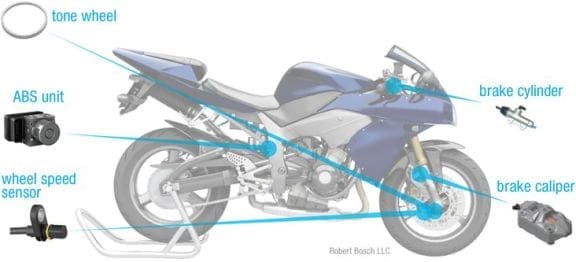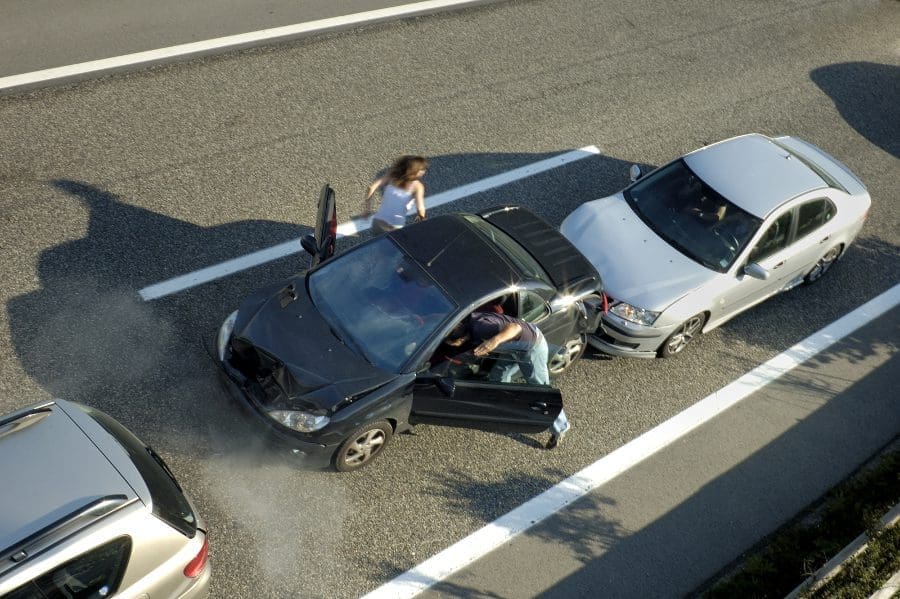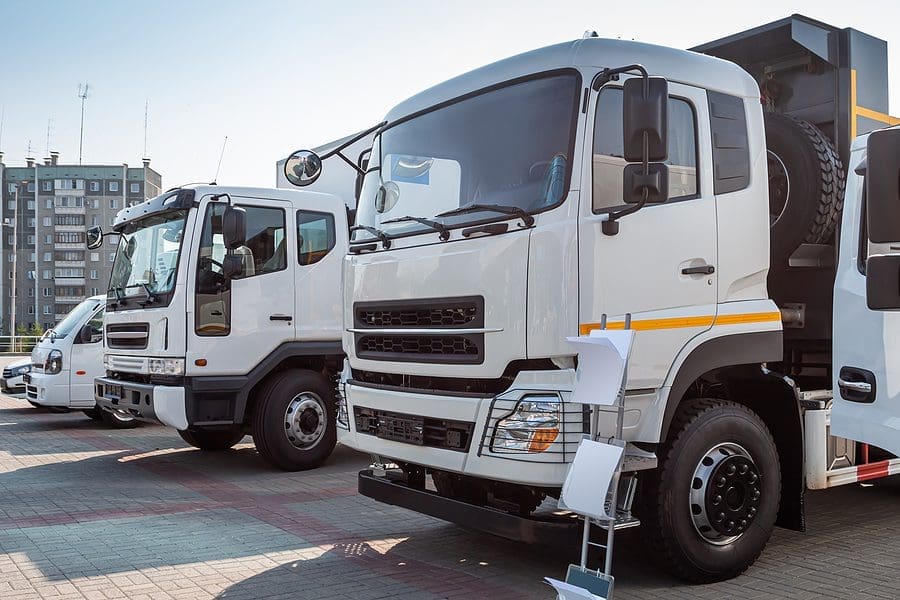JONES LAW GROUPYour Lawyers for Life! Personal Injury Law Firm in St. Petersburg

Everyone reads about the technological safety advances for automobiles. Car accidents become less likely every day. Four states, one of which is Florida, have passed laws allowing driverless cars on the roads. Cars are increasingly becoming equipped with forward collision warning, blind spot detection, lane departure warning, lane departure prevention, auto braking, adaptive headlights, and […]
Call our personal injury law office directly at (727) 512-9847
At Jones Law Group in St. Petersburg, FL, we would like to hear from you. Contact us for a free personal injury case consultation.
Call our personal injury law office at (727) 512-9847
Get educated on the Florida's personal injury laws and more.
Everyone reads about the technological safety advances for automobiles. Car accidents become less likely every day. Four states, one of which is Florida, have passed laws allowing driverless cars on the roads. Cars are increasingly becoming equipped with forward collision warning, blind spot detection, lane departure warning, lane departure prevention, auto braking, adaptive headlights, and adaptive cruise control. All the safety features in the world, but motorcycles do not even have to come equipped with anti-lock brakes. Why? One biking couple has posed the question to Harley-Davidson in the form of a lawsuit.
On a motorcycle, the brakes are typically located on both the front and rear wheels, providing the rider with the ability to control speed and stop the vehicle effectively. The front brake lever, usually located on the right handlebar, controls the front brake, which is responsible for the majority of the stopping power. The rear brake pedal, positioned on the right side of the motorcycle’s foot controls, operates the rear brake. Proper braking technique involves using both brakes simultaneously, with a greater emphasis on the front brake, to achieve efficient and balanced stopping. Understanding how to effectively use both brakes is crucial for motorcycle riders to maintain control and ensure safety on the road.
According to the complaint, Mark Jones was driving and his wife was the passenger on their 2012 Harley-Davidson Electra Glide Classic. The negligent driver of a car cut into the Jones’ lane forcing Mark to make an emergency stop. The wheels of the bike locked up causing a fishtail that flung Jones and his wife for a significant distance. Both Mark and his wife, Pamela, suffered skull fractures, brain injuries, and other broken bones.
The couple sued Harley-Davidson for failing to offer ABS brakes on the model which they had purchased. Harley offered anti-lock brakes on some of its other models, as ABS brakes on motorcycles is a technology that is roughly 40 years old. Other manufacturers of motorcycles such as BMW have the ABS brakes standard on all new motorcycles.
The Insurance Institute for Highway Safety and Highway Data Institute strongly advocates for the use of the technology in all new motorcycles. The IIHS has put out the following video on the benefits of ABS on motorcycles.
Obviously, in emergencies when a rider is completely locking up, anti-lock braking systems may save lives. Studies indicate that riders with ABS are 20% less likely to be involved in any crash and 31% less likely to be involved in a fatal crash. All motorcycles manufactured in Europe are required to have anti-lock brakes, so that is a sign of things to come here, as well.
It makes for lazy, less qualified riders. Riders with ABS should still learn how to properly brake a motorcycle with the correct amount of braking control in the front and rear wheels. The argument by the riders resistant to ABS being installed on motorcycles is that new riders will learn on bikes with the ABS technology and will not learn how to properly brake their motorcycle.
The ABS on a motorcycle works by constantly monitoring the speed of the wheels. This is accomplished by the use of a small grooved ring near the brake disc called a tone wheel. The wheel speed sensor sends the tone wheel readings to the ABS unit, which can determine whether the wheel is about to stop rotating or lock up. If it is, the wheel speed information is used to adjust the pressure from the brake cylinder on the brake caliper multiple times per second. These pressure adjustments allow the motorcycle to stop without locking the wheels and maintaining maximum traction.
I am not advocating for all motorcycles to come with anti-locking braking technology standards, but like the Jones, I believe that it should be an option on all models. Prospective buyers who wish to have ABS on their new motorcycles can purchase the option and those riders who do not want it are not forced to have it installed on their new bike. This would allow riders who are skilled and comfortable with motorcycles without ABS could continue to purchase such bikes and those riders that wanted the option could purchase it.
Have you or a loved one been injured in a motorcycle accident? Contact an experienced St. Petersburg motorcycle accident attorney at Jones Law Group today. When you contact our office we will immediately set an appointment where you will meet your attorney and be provided with his/her personal contact information. If you do not have transportation or you cannot drive, your attorney will travel to meet you and discuss your case with you.
If you or a loved one has been injured in a motorcycle accident caused by the negligence of another, you should immediately call an experienced personal injury attorney in St. Petersburg at Jones Law Group at (727) 571-1333 during regular business hours or (727) 753-8657 on weekends or after regular business hours. We will evaluate your case for free and you will never pay us a dime unless we recover compensation for your injuries.
Jones Law Group
5622 Central Avenue
St. Pete, FL 33707
References:

When a truck accident occurs – and these kinds of accidents take place far too often – injury victims find themselves in a complex legal situation. There are a lot of laws that will have a substantial impact on not only your ability to obtain compensation, but also on the amount of compensation you may […]

Being in a car accident is one of the most horrible, most terrifying things that anyone can ever experience – especially if they’ve been severely injured. This can also be an extremely complex situation, one that will require the help of a skilled personal injury attorney if you’re going to have the best chance of […]

Summary: Personal injuries can have far-reaching consequences. One significant aspect people often overlook is how personal injuries can affect employment. Whether it’s a slip and fall, a car accident, or any other unfortunate incident, the injuries sustained can lead to short-term and long-term challenges. If you’ve suffered an injury in an accident due to someone […]

New Technology May Soon be Available to Police The ComSonics company is close to production on a hand held device that police will be able to use to determine whether you are texting while driving.[1] ComSonics is a small company that already has a strong relationship with law enforcement as it currently manufactures, repairs and […]

More than 300 people died on Florida roads due to truck accidents in 2019, and thousands of others suffered debilitating, life-altering injuries. When people suffer such horrible losses, those responsible must face accountability. The only way truck accident victims can obtain justice is by hiring an experienced attorney. These legal professionals possess the knowledge and […]

Suffering a personal injury in an accident can be a traumatic experience. Whether you’re involved in a car crash, slip and fall, or any other type of accident, seeking immediate medical attention is essential. Medical treatment after a personal injury accident is essential not only for your health but also for your legal claim. The attorneys with […]
Speak with us before time runs out! In Florida, you have a limited window to file a personal injury case, so speak to an Attorney today.
Call our personal injury law office directly at (727) 512-9847
Jones Law Group is a dedicated personal injury lawyer in St. Petersburg, FL, serving the Tampa Bay area since 2006. Our experienced attorneys specialize in car accidents, slip and fall cases, employment law disputes, construction law issues, and overtime wage claims, fighting for maximum compensation on a contingency fee basis. Contact us for a free consultation to discuss your case.
Call our personal injury law office at (727) 512-9847
© Copyright 2006–2025 Jones Law Group Attorneys at Law. All rights reserved. Privacy Policy Terms of Use
Attorney Advertising.
The information on this website is for general information purposes only. Nothing on this site should be taken as legal advice for any individual case or situation. This information is not intended to create, and receipt or viewing does not constitute, an attorney-client relationship. Past results do not guarantee similar outcomes.
Are you injured or wronged and interested in a consultation? Fill out the form for a free consultation with us.